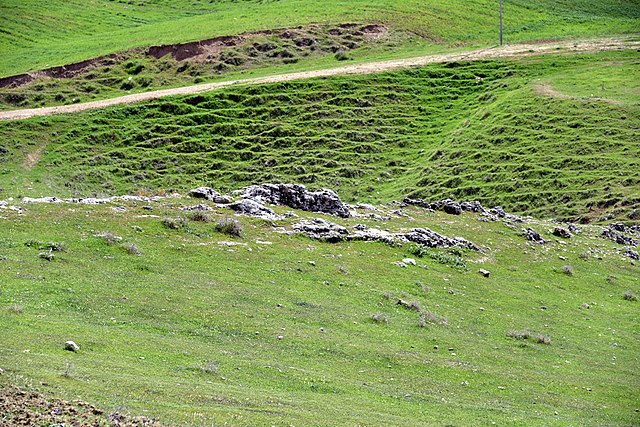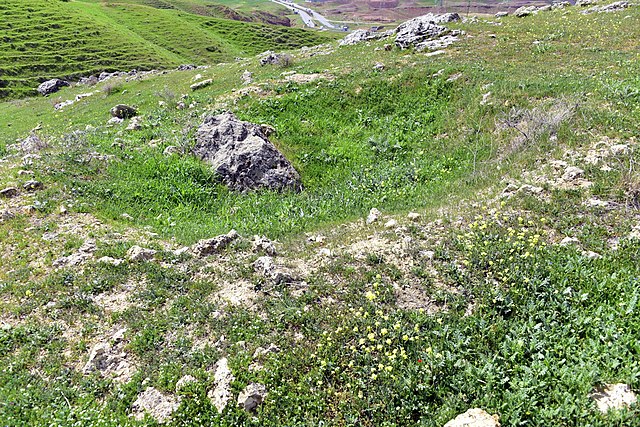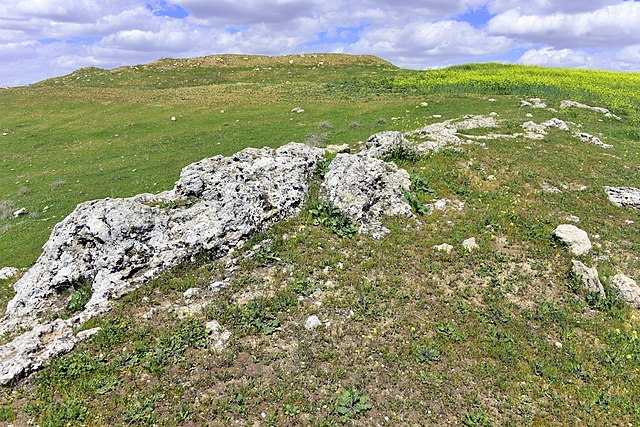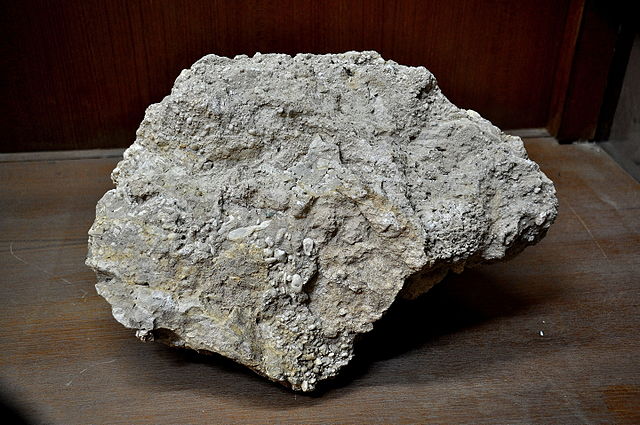
| BARDA BALKA
Barda Balka, March 2021. The 4-meter high megalith was deliberately demolished and its fragments are scattered on the site Location : Iraq
Type : Surface site
History :
Material : gravels
Periods : Middle Paleolithic, Neolithic
Cultures : Late Acheulean
Site notes :
Excavation dates : 1951
Archaeologists : Bruce Howe and Herbert E. Wright
Barda Balka is an archeological site near the Little Zab and Chamchamal in the north of modern-day Iraq.
The site was discovered on a hilltop in 1949 by Sayid Fuad Safar and Naji al-Asil from the Directorate General of Antiquities, Iraq. It was later excavated by Bruce Howe and Herbert E. Wright in 1951. Stone tools were found amongst a particular layer of Pleistocene gravels that dated to the late Acheulean period. The tools included pebble tools, bifaces and lithic flakes that were suggested to be amongst the oldest evidence of human occupation in Iraq. They were found comparable with tools known to have been made around eighty thousand years ago.
Similar material was found in other locations around the Chemchemal valley.
A Neolithic megalith is also located at the center of the site around which the tools were found.
Gallery :
Barda Baka in March 2021
Barda Balka, the large megalith once stood here was demolished
A fragment from the megalith of Barda Balka, in situ
A fragment from the megalith of Barda Balka at the Sulaymaniyah Museum, Iraq
Source :
https://en.wikipedia.org/ |




